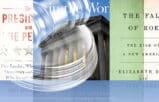Memory hacks are important because … I mean, I was going to say … uhm.

Table of contents
There are a lot of moments in the workday when you need your memory to work. In a busy practice, introductions happen all the time — about as often as having to recall names. You type a password 19 billion times before lunch. You have to enter a docket number into a database and can’t find the sticky note on your desk.
These memory hacks will carry you through some of the most critical recall challenges.
Memory Hacks for Remembering Names
Forgetting someone’s name is the worst, since you’re usually staring at their face while you’re clearly not remembering who they are. But you can trick your brain into stapling their name to the tip of your tongue.
First Hack: Say Their Name Back to Them When You First Meet
You’ve heard this before and you never do it because you keep forgetting to. But it works. That’s why it’s in every post about memory hacks on the internet.
How You Do It
Person with a name: Hi, I’m Marsha.
You: Hi, Marsha, your name is Marsha. Marsha is your name.
Marsha: Oh my God, you’re a robot.
You: Marsha (laughs in human tone)! You’re so funny, Marsha.
Marsha: (Stares)
You: Marsha.
Why It Works
Because our brains are dumb. Yeah, I know, they’re the most extraordinary computer on earth, but they’re also built on top of the vestigial stump of a lizard brain from the Mesozoic that lacks a frontal cortex and just sits there at the end of your medulla oblongata with its eyes half open drooling. Yet it runs everything. EVERYTHING. Using the inherent rules of logic laid down 10 million years ago by our reptilian robot overlords is a way to hack that lizard mind to make memories stick better.
Maybe This Is Better
If repeating someone’s name is too weird for you to work into a conversation, try turning their name into a story featuring their face. DON’T DO THIS OUT LOUD. This memory hack works because, again, lizards. Just look at Marsha who has a killer blue-black asymmetrical haircut that would’ve made David Bowie kick himself in the ass but is staring at you through granny glasses and sporting a turtleneck sweater. So ‘70s. Oh, my god, she’s Marsha Brady if Marsha Brady went punk. She’s punk rock Marsha Brady! You will never forget her name. You will whisper her name as you slough this mortal coil.
Second Hack: Make a Table Map
You may not have a chance to repeat everyone’s name if the initial introductions are done in a meeting. As you’re thinking how in the !@#% am I going to remember all these people’s names, everyone does the introduce-yourself-around-the-table thing and you’re like, oh crap, I’m already behind.
How You Do It
Whip out a pen and paper. Draw a rectangle in the middle. This is the table. Put an X for yourself, then as they go around the table introducing themselves, jot down their name, what they do, and some standout feature. PICK THE FIRST THING THAT COMES TO MIND. Don’t try to game this. Your mind is helping you out by noticing that Malcolm from logistics is wearing octagonal lenses. Just do it: Malcolm/Logistics/Octagonal glasses.
Why It Works
Because I just told you. Your hind brain[1] is already trying to remember everything in incredible detail. You, working there in the forebrain, only need to play along. If your monkey mind tells you Lorraine’s oversize collar is from a Vermeer painting, just jot down Vermeer collar and keep going. Trust your inner monkey.
Maybe This Is Better
There is nothing better.
Memory Hack for Remembering Numbers
For a while, way back before smartphones, I couldn’t remember my sister’s new phone number. It drove me crazy. Every time I tried to call her, I had to look it up. I finally realized I could apply a version of Lewis Carroll’s couplets, a memory hack from the Victorian era. Carroll (Alice in Wonderland, mathematician) turned important prime numbers, dates and who knows what other long numbers into rhyming couplets based on a table of correspondences using Greek and French alphabets (and my head already hurts thinking about it). You can use a version of Carroll’s couplets by making up stupid little stories based on the numbers you need to recall.
How to Do It
To remember the number (312) 869-2408 I break it into chunks. Chicago’s area code is 312, so those three numbers become “CHICAGO.” The rest of the number breaks down like this:
- 312 — “Chicago”
- 86 — “86” restaurant term for removing from the menu
- 24 — “days” because there are 24 hours in a day
- 08 — “Onions August” because 0 can be the first letter in onions, a restaurant item, and 8 is August.
I then turn this into a really stupid story: “Chicago eighty-nined whole days of onions in August.”
I bet you just read that and thought, “My God, that is idiotic!” And I agree. That sentence is meaningless and stupid, but it feels like it means something. Its grammar works. And none of that matters. The only thing that matters is the process of turning it into a story. You can easily recall this little tale, then unpack the number it contains. It works because you did the work, because you made up a kind of system, and because the imagery is ridiculous.
It works just as easily for docket numbers. Working on a chancery case known as 19-CH-751214 (a number I made up, so if you really are working on this case, that’s a WILD coincidence and please call me)? Have to write this sucker down 87 times a day? Turn it into a story: “This year check for 75 bucks in the month of February.” Doesn’t make a lick of sense, but it sticks.
If you need a cleaner memory hack for numbers, your rule might be that every long number is divided into pairs. So the example above becomes 31-28-69-24-08. You can devise a permanent collection of numerical associations for the single digits. The most typical way is to associate them with images that rhyme, which has led to this very common rubric:
- 1 is a gun
- 2 is a shoe
- 3 is a tree
- 4 is a door
- 5 is a hive
- 6 is a sticks
- 7 is a heaven
- 8 is a gate
- 9 is a wine
- 0 is a hero
Your number can now be: Tree-gun shoe-gate sticks-wine shoe-door hero-gate.
Turning each of these pairs into an image is a memory hack that helps you recall the number. It takes practice and, ironically, you have to remember the correspondences. This may lead you to create the following brilliant and epic story: A tree with a gun shot a gate made of sticks and wine bottles then the shoe ran through the door but was stopped by a hero at the gate.
Maybe This Is Better
Combine them. The area code is always the city for the number: 312 is Chicago, 404 is Atlanta and so on. Some pairs of numbers work better as a single image. So, now you have 312-86-9-24-08.
Chicago gate sticks wine all day, not August. Which is dumb. A little tweaking lets you incorporate very simple rhyming correspondences. Eight equals ate. Sticks is six. Which turns the whole thing into a dipsomaniacal tragedy: Chicago ate six wines all day — not in August.
Memory Hack for Remembering Every Password
Most big firms use programs, apps and wireless dongles to constantly update passwords to keep electronic files safe. However, you may not have that kind of scratch, so instead you’ve got a secret legal pad filled edge-to-edge with all your logins and passwords. Just as you may have developed a naming convention for all your files, you can create a master password format that allows you to generate new passwords on the fly.
How to Do It
- Step 1: Figure out your hook. This will be the body of your password and it can be anything. Really into “Game of Thrones”? Use “I drink and I know things.” Big fan of Ariana Grande? Try “God Is a Woman.” The first letters of these phrases or titles become the middle of your master password. IDAIKT or GIAW.
- Step 2: Use the lowercase initials of the service or protected document. So Evernote becomes e n. The Lucas Ford Diagnostics case will always use lfd.
- Step 3: Use the year or month you’re in. If you change your passwords monthly, then March is 03, May is 05, etc. Annually? For this year, you’d use 19 all year.
- Step 4: Throw in some kind of wingdings. For example, always start with an asterisk or always use @ for “a” or always end with a favorite number, like 33.
So your password convention is *GI@W1903xx33 where xx will be the initials of the service you’re using. If you’re logging in to LexisNexis in May, your password will be *GI@W1905ln33#.
Why It Works
When we chunk information — that is, break it down into manageable portions — our mind has a much, much easier time recalling it. Repeating information and turning it into a pattern also makes for easier retrieval.
For password strength, using a combination of symbols, uppercase and lowercase, and more than 10 characters makes your password very hard to decrypt. How hard? I ran the example above through mylogin.com’s strength test and got this:
Maybe This Is Even Better
Not to go all non-Analog on you, but, as every technology and security expert who’s written for Attorney at Work, ever, will tell you: Get a password manager!
Working Your Memory Muscle, Or, Why This Matters
Remembering information is the fastest way to use it. Although our smartphones and robot assistants make it very easy to find, they’re still not faster than remembering someone’s number that isn’t on your favorites list.
Yes, apps can store mountains of data, but you still have to petition its recall with a few keystrokes. Hacking your memory turns your brain into your most finely honed information technology.
Also, working your memory muscle keeps your brain elastic. As you grow older, your memory settles. (This is not a science paper, OK?) Although a healthy senior partner’s mind has a perfectly capable memory, unless it is used it will recede into the back of the cranial closet. Then, when it is needed, it takes a minute for memory to work its way past all the clutter, old brooms and half-forgotten ’70s song lyrics to come to the fore.
Employing one’s memory regularly keeps it upfront in the mental toolbox for a long time.
And finally, let’s be honest here, being able to recall complex strings of numbers and important information instantly is impressive. It’s like doing long division in your head. People will think you’re magical.
The techniques listed above are only a handful of a whole world of memory hacks. There are entire societies of people devoted to hacking their memory. Do you have a favorite memory hack?
[1] LOL. This is not a thing.
Image © iStockPhoto.com.

Sign up for Attorney at Work’s daily practice tips newsletter here and subscribe to our podcast, Attorney at Work Today.
















